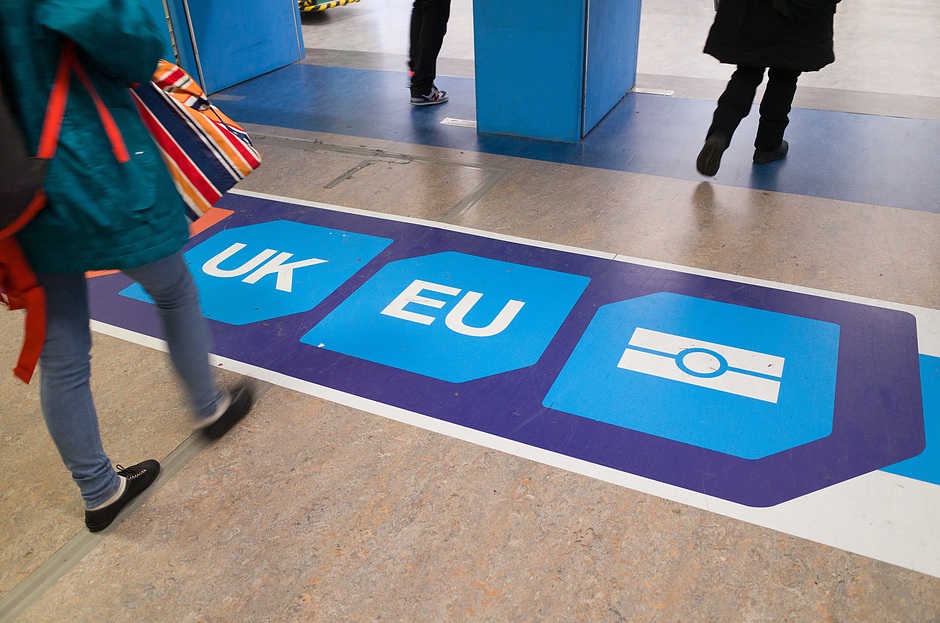Boris vs Brexit or the testing of the EU

The title could also be Boris vs the City or Boris vs the EU Commission. Each is a center of opposition to the Brexit project and an opponent that must be overcome or circumvented by the new Prime Minister to keep his October 31st promise.
In June 2016 the United Kingdom voted 51.9% to 48.1% to leave the European Union. Of the four components of the UK, England and Wales voted to leave while Scotland and Northern Ireland chose to remain. Within England it was London and its suburbs that provided the staunchest backing for EU membership.
(BBC)
At an overall electorate turnout of 72.2% after a lively, challenging and well-covered campaign the surprise result cannot be represented as anything but the considered decision of the electorate.
Prime Minister David Cameron who called the vote to quiet the EU skeptics in his own Tory Party, may have been as shocked as the media by the bumptious voters, but there is no reason and no logic to declare the vote illegitimate as both the Conservative and Labour Parties acknowledged by promising to implement the departure.
Whatever the reasons for the nationwide vote, opposition in London’s financial and business centers and Parliament has meant that Theresa May was unable to find a formula to satisfy those members of both parties who wished to remain and Conservative Party leavers.
The Labor Party tried to keep a neutral stand on the various Brexit deals and many Labour members who voted against Ms May’s agreements represented constituencies that voted heavily to depart.
After all the Parliamentary maneuvers the twice extended exit date on October 31st remains the default position between the UK and the EU.
The Commons may have voted not to leave the EU without a negotiated agreement but without an extension from the EU or a change of heart in Parliament or the government, that Parliament approved date is intact. Accordingly the UK will no longer be a member of the EU on November 1st.
Theresa May’s negotiations with the EU Commission were crippled by the inability to use a no-deal exit as leverage. No doubt Ms May and many of her backers in the Tory Party were sincere in saying that the potential economic turmoil was not worth the risk, many were also hoping to thwart Brexit entire but that didn’t change the fact that the UK gave away its strongest weapon before even starting.
Michel Barnier and the EU Commission were to astute to mention the obvious but the terms of the deal and the repeated humiliations of Ms May speak for themselves.
Boris Johnson has resurrected the attenuated ghost of a no-deal departure by refusing to rule out that outcome but has been vague on how he will force the EU to re-open talks.
The EU has said that the fundamental elements of the agreement, particularly the Irish border terms are not negotiable. The Commission says it does not want a no-deal exit but thinks that the economic damage would be far worse in the UK that the EU. Since the balance of trade between the two is heavily in favor of the EU that stance is a negotiating tactic not an economic fact.
It is likely that when faced with a no-deal reality, or the bureaucratic facsimile of one, the Commission will become more flexible.
Which brings us to the chief question for Boris Johnson. How to exert enough pressure on the EU and the Brexit opposition in the UK to make the Brexit deal palatable and acceptable enough to pass Parliament?
The answer is two-fold.
First make no-deal as real as possible. Not only plan for it in a public and persuasive manner but make it plain that the October 31st departure is still the law that Parliament passed.
Second, it might not be amiss to remind the EU and the world, perhaps not by the PM himself, that treaties between nation-states are voluntary. Ultimately they are policed by force or not at all. If the UK abrogates the Lisbon Treaty certainly the initial EU reaction would be to block all cooperation. But the economic logic of that would be as detrimental to the EU as to the UK.
As October 31st approaches the UK government could announce that it will selectively withdraw from specific aspects of the EU treaties and keep others in place. Westminster could essentially let the EU know what it will do and let the EU decide how to respond.
Will the EU then block all trade with the UK until a comprehensive agreement is negotiated? Will it revoke the work permission of the UK subjects on the continent? The details are in some sense, less important than the notice such a policy would send to Brussels that the decision to leave is irrevocable.
The Brexit negotiations have never tested the EU resolve or its unity. That trial may be coming. Boris has more options than most people realize.
Author

Joseph Trevisani
FXStreet
Joseph Trevisani began his thirty-year career in the financial markets at Credit Suisse in New York and Singapore where he worked for 12 years as an interbank currency trader and trading desk manager.

















